Syeyoung Park (born 1996) is a filmmaker based in South Korea. His films have a heavy leaning towards personal, independent filmmaking. His short film “Cashbag” won the best editing award at the 2020 MISE EN SCENE film festival and his next films including “Godspeed” and “Between the Hotel and City Hall” have competed and been invited to several film festivals. “The Fifth Thoracic Vertebra” which premiered at the Bucheon International Film Festival and won three awards (Best Director award, NH bank distribution award, Audience award) and Fantasia Film Festival (Special Jury Mention Award for new flesh feature) in 2022 is his first feature film. (Source Park Syeyoung's Official Website)
On the occasion of “The Fifth Thoracic Vertebra” screening at Across Asia Film Festival, we sat with him and chatted about the story of the movie, his experience as an independent, non-funded experimental filmmaker, the concept of time in “The Fifth Thoracic Vertebra”, the lonely life of an accidental editor, and other topics.
“The Fifth Thoracic Vertebra“ screened at Across Asia Film Festival
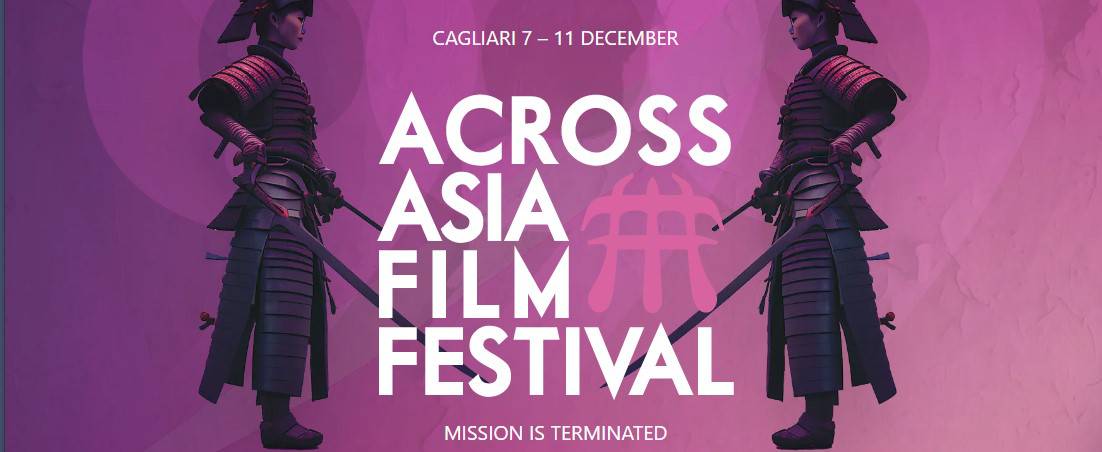
Can you tell us something about your background?
I lived abroad, in Canada, from when I was 5 year old because my father wanted to study Latin and linguistic at the University of Canada, and my family moved there with my father, so I spent most of my youth overseas, not in Korea. When I returned to Korea, I found out that Korea is really competitive, everybody was competing to be number one, in any field. I couldn't adapt to the Korean educational system, so they sent me to a boarding school in the mountains. There they didn't make us compete for anything and I was free to do whatever I wanted to do. I wanted to get into fashion design school at first, make dresses etc. but somebody told me that fashion is not art but it's “commercial industrialism”. I was very young, and I thought that I didn't want to do that, I'd just make movies.
I am glad somebody told you that!
(Laugh) But then I found out that movies are more commercial than fashion! The first time that I thought I wanted to make movies was when I saw “Psycho”. Our teacher from New Zealand, who came to South Korea to teach us English literature, showed us the film at school. Despite being a very old movie, the grammar of suspense was very new to me. The films I had watched until then were films like “Finding Nemo” or other animations and it was very shocking to me that just with editing and montage you can create really realistic feelings. I think that called me to make films – the shock I got watching Hitchcock‘s works – so I went to film school and studied film. But every film I made the teacher said: “this is not cinema”, “too experimental”, or “too slow”, or “it has no story”; they were too experimental. I like Michael Snow (“Wavelenght” – 1967) but in Korea they don't think of him as a filmmaker, they consider him a video artist, so I was always thinking: “What makes a film?” and “What doesn't make a film?” The short films you saw here at the festival (“Luxury Staycation” and “Cashbag”) are the result of that problem; I wanted to please my teacher and I wanted to graduate so I just needed films to please him. But after making those two films I thought that that wasn't what I wanted to do, and I kept experimenting and experimenting and “The Fifth Thoracic Vertebra” is the product of this experimenting.
Where did the idea come from?
I don't get money from my parents, because my father is a Christian Pastor and he doesn't earn a lot and my mum doesn't have much money either, so I had to make my own money at University and since I started to go to film school I always lived in very small flats. In Korea the contracts are only for 2 years, after that you have to go somewhere else. So, I just kept moving and moving, I always had the same budget but because the house prices kept rising and rising, every time I moved, I had to move a bit further from the center. Now I live in a place that I consider as Seoul, but lots of people think it's not Seoul. In every house I lived in, even if very small, the sun light was very important to me, I always look for it when I rent a flat. Once I had a very well lit flat, but I had underestimate the humidity and every time it rained it got very wet inside and the moisture started to form mold and fungus on the wall. No matter how hard I tried to eliminate that fungus and mold, it just kept coming back. In the end I just put “Uncut Gems”'s movie poster on top of it and forgot about it. After two years, I had to move out of the flat and when I went to take the poster down, I saw the fungus had grown enormously; from a flat stain, it had turned into a 3D, hairy thing, it was attached to the poster, and it seemed to tell me it didn't want to die. I felt very sorry for it, it just wanted to live, and I felt some king of empathy towards the fungus and I've always wondered what happened to it after I moved out, if it's still there with the new tenant of the flat or if it moved to a new house. This is how the story come out. I wanted to focus on a growth story, from birth to death, but not of a human being, of a non-human being that can teach us how to be human.
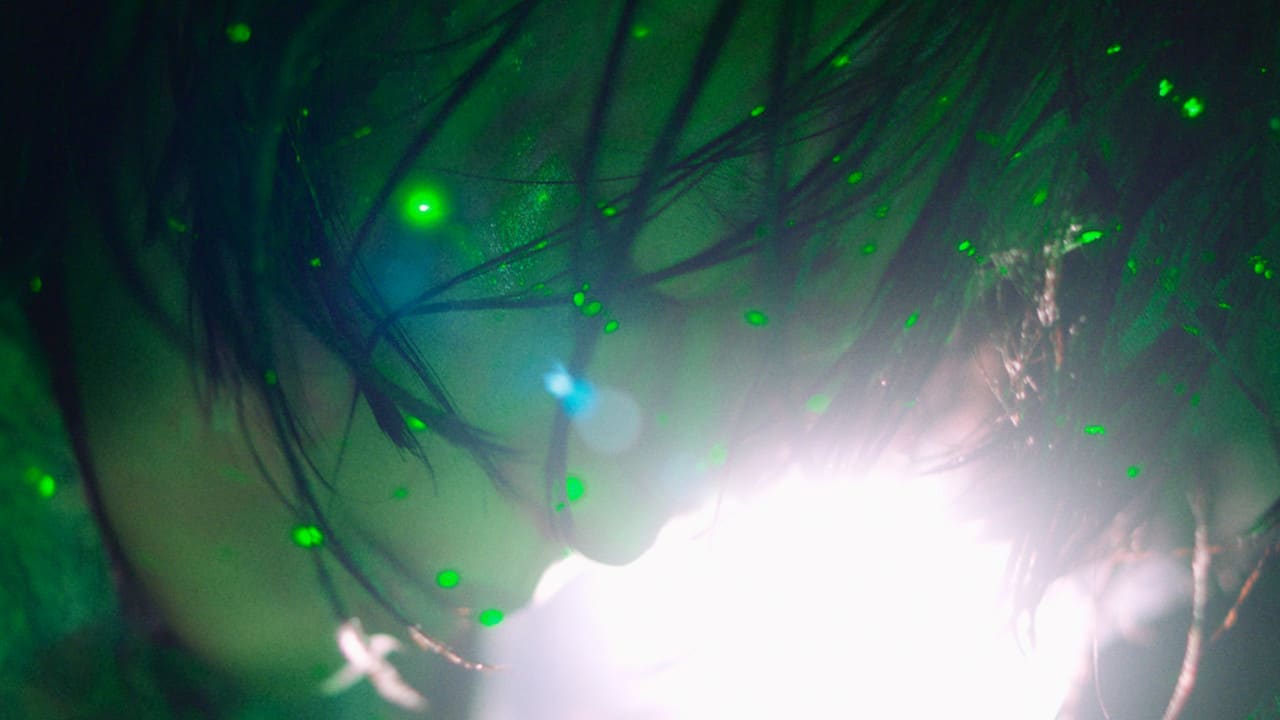
There is a very precise count of time in the phases of your film, pre-birth after birth etc. Where all those numbers come from? What do they mean?
I didn't really think, I was editing, and I just put some numbers, any numbers and that was it.
(We laugh) Perfect! But numbers aside, there is a poetic and strong concept of time in your film.
There are two reasons for that, one very personal. My mother started to write letters to me before I was born and when I turned 19 she gave me this diary that was like 1,000 pages of letters that she wrote to me since I was conceived until I was 19 year old. It was really fascinating because the letters were not generic love confessions but very specific pieces of advice, like “don't drink coffee at night”, or “you must go to sleep before 9:30”, things like that. Sometimes she wrote to me every day, sometime she would write 100 letters in one day, and then forget about me and write a year later. So very random. That was very powerful to me because it spoke to me about memory and remembering. It is not a regular flow but it is very random, whenever the heart pulses, the memory follows it.
The second comes from when I was studying montage theory that says that A + B = C. Under that basic formula anything is possible, you can put one shot, and another shot and create an emotion, and having that in mind helps me to do whatever I want with time.
I guess you like the editing, montage part as you did it yourself. Are you passionate about editing?
Oh no, I don't like any of that! Because I am the cinematographer for my own film, so I have no sync, no sound, no compassion for the editor, nobody wants to edit my film, that's why I edit, because nobody else does it, that's it. I don't like editing!
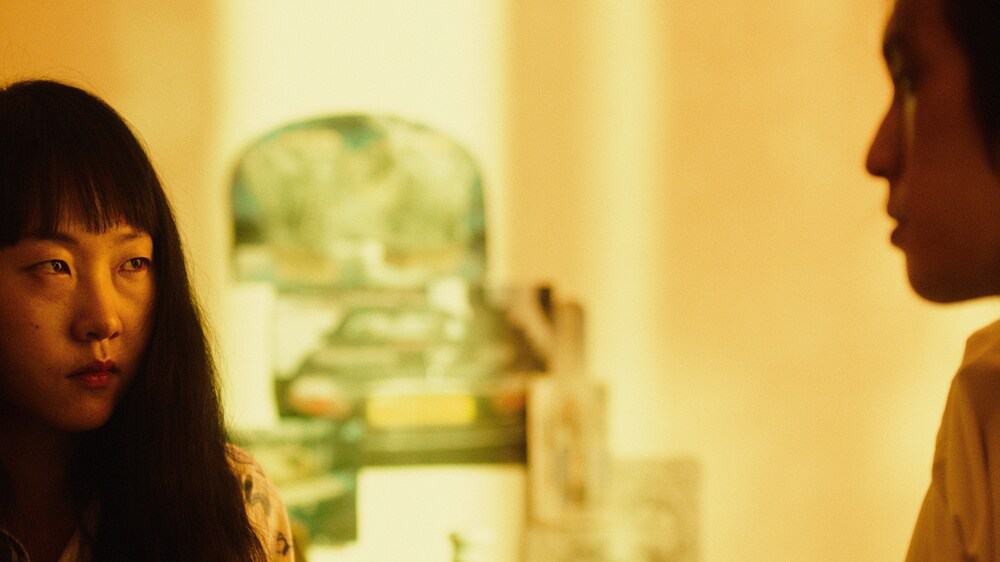
Talking about shooting and editing, and your very personal style, what is your method? Do you write rigorously, do you plan a lot or you shoot a lot and then compose the whole?
90% of the actors in my films are non-professionals, just friends or musicians, or friends from my youth. They don't know how to make films, I don't know how to make films, so we can do lots of things, there is a script and we always forget the script and we always end up improvising, like jazz. There is a story, but improvisation opens up to more emotions than the storyline, so as we have no money and we don't get funding from government or any film institution, then there is nobody there to say what we can or cannot do. That opens the opportunity to make lots of mistakes. “The Fifth Thoracic Vertebra” is 65 minutes, I shot 4 to 5 hours of the film; there are bad takes with the actors, because they are not good actors and there are bad takes because I am not a good cinematographer or director, and I just cut everything off and take only the good things.
And did you enjoy the freedom coming from this absence of financing institutions?
No, I don't enjoy that (we all laugh) It's very lonely, I can't get money in Korea for the film I want to make because who wants to give me a million dollars to make a movie about a mould?
Yes, but the film is having quite a bit of success, it won some awards, is going a festival tour with very good reviews, even here in Italy (it was recently at the Turin International Film Festival). Is this success boosting your confidence and helping you with the next project?
I didn't think my film would go anywhere; I didn't think about it. It is a bit of a different story, but a role model of mine is Albert Serra; he makes his own production company and gets funding from lots of different countries. I want to do like him, not enter the big Korean film industry and try to make as many films as possible with a little bit money and with freedom.
To answer your question, freedom is always good but also bad sometimes, I think that there has to be someone saying: “you should do this”, “you shouldn't do this”, and there should be rules so that I can decide to say no to the rules or to say ok to the rules. So, there has to be guidelines I think, but in my case there is nobody telling me you can't do this because nobody is giving me money, so that is good, but also bad because objectification is impossible, honestly I do all myself. I had to do everything myself, so I think it is lonely in that sense.
As a spectator, which kind of films do you like to watch? What is it that catches your attention? A bit of Cronenberg and a bit of Tsukamoto come in mind watching your works.
I like Japanese pink films, Italian Giallo films, basically films with no money because not having any money, they are more radical. In the case of films that have lots of money I like when they use it very stupidly, just throw the money to do whatever they want. Any film that is radical from the system is very exciting. I like Cronenberg, I enjoyed the latest one (Crimes of the Future), very different from all his recent films, more playful and simpler, like his very old movies.
Talking about body horror, I don't like calling your film “horror”, maybe because I felt big empathy with your creature and the end with the letter reading is so poetic and melancholic. Can you tell me a bit about this open-air final location which is also very similar to the one of you other “Cashbag”?
I thought “The Fifth Thoracic Vertebra” a bit as a creature's “birth to death” and in that criteria, how do you show the growth of a mold? Something I wanted to do is that it learns language, the first words it learns is “die”. For a human being the first word is always “mama” or “papa” but for the creature is “die”. Where does it go from there? How does the word “die” turn into a whole letter? I think that was what I wanted to do and as it learns the Korean language it also learns to empathize; it is very humanistic but also not very humanistic in that way. The ending of “The Fifth Thoracic Vertebra” is set in Korea, near the North Korean border. If you walk a kilometer ahead you enter North Korea and you are shot; there are people holding guns against trespassers. I thought that – landscape wise – it starts in Seoul and moves away from the big city, into territories that are unknown. It could be a metaphor for growth. As the creature grows more human-like it also turns more away from civilization, and I think the ending was very good; metaphorically and literally, the end of nature.
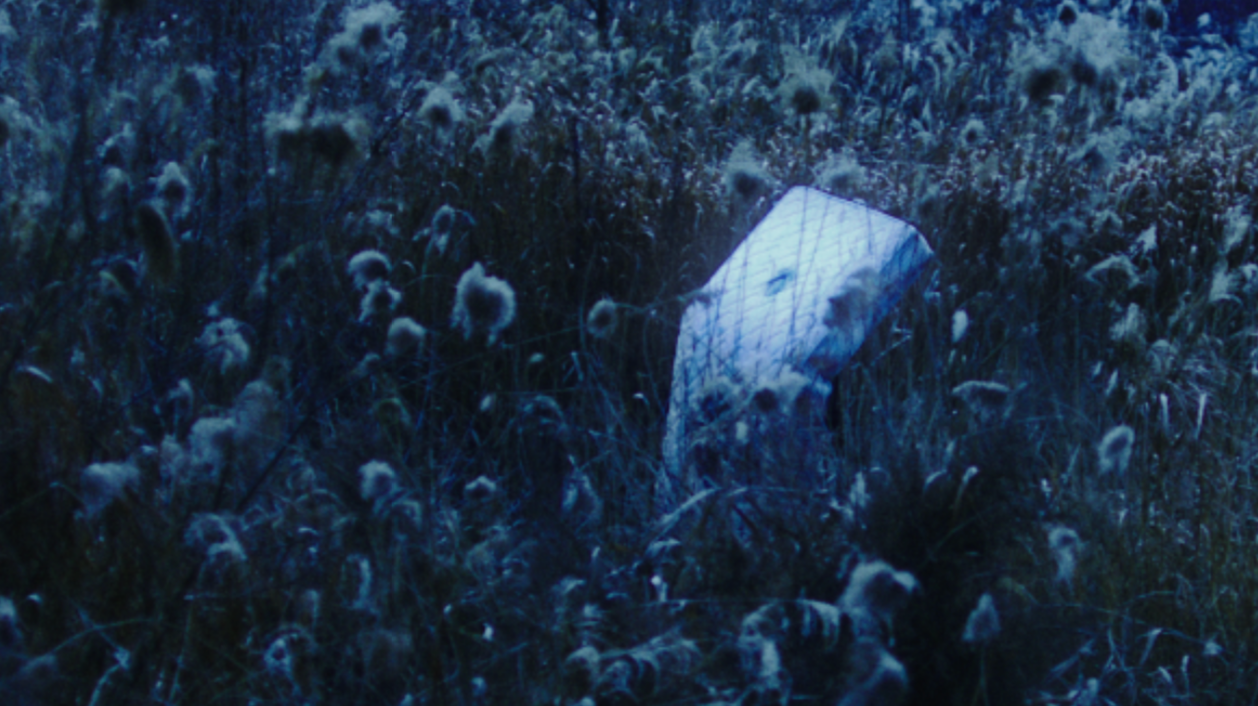
What about music and your collaboration with musician Han Minhee?
For my film I would have liked to have as a score, the music of Isao Tomita, a Japanese composer, one of the pioneers of electronic music and space music. I like his music very much but the rights were too expensive so, with the help of musician Han Minhee, we tried to recreate those kind of atmospheres.
What do you think of this massive expansion of Korean cinema and the success is having abroad?
It's great, but it doesn't help me in any way. There isn't any direct connection with me or my friends. It opens up platforms but there isn't enough funding for independent or experimental filmmakers, it's mostly genre films that succeed overseas, experimental filmmaking is almost non-existing in Korea, nobody does it.
What about your next project? I know it's happening; you couldn't go to the Turin International Film Festival and the London Korean Film Festival because you were editing it.
Yes, in France there were these people called Cagots, a persecuted minority, they were put away in prison because of their ethnicity, persecuted and thrown into the Ocean to die. I've read about that and inspired me as there are lots of people in Korea with different ethnic origins that are Korean, but they are not treated as Korean because they look different, their skin color is different. They like living near the sea and they works often in kitchens, where nobody can see them. So, I wanted to make a film about them and – as there is a rumor in Korea that there are mermaids near the sea – my film is also about mermaids that are not really mermaids but just ugly human beings, treated as mermaids; one of them dies and they want to bury him as a human being. We shot it last week and the first editing is done, and we are trying to submit it to premiere festivals, starting in January.
Good luck then!


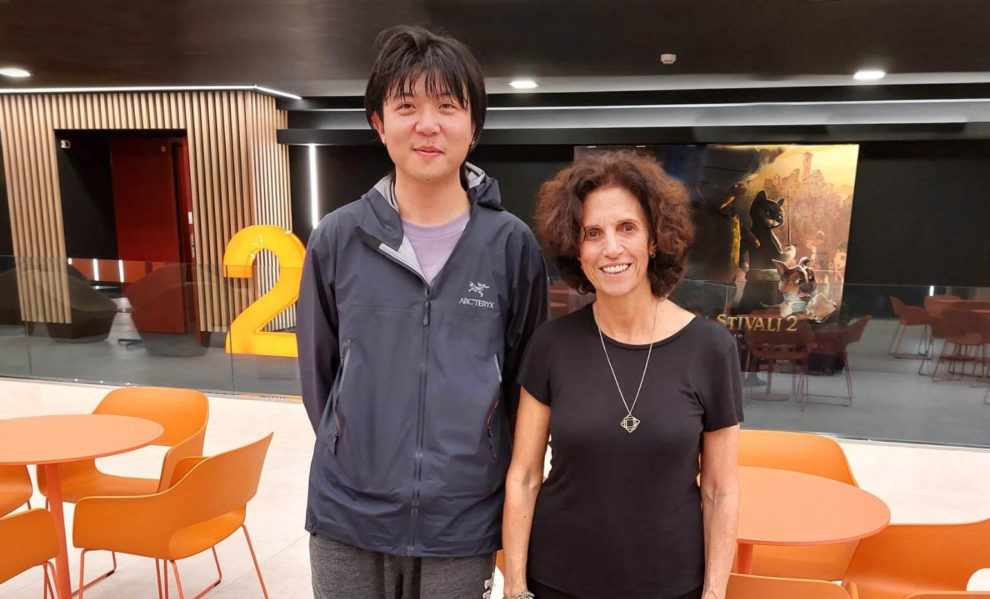
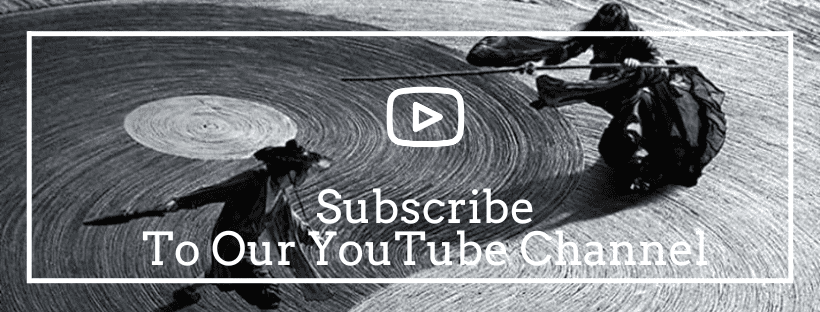
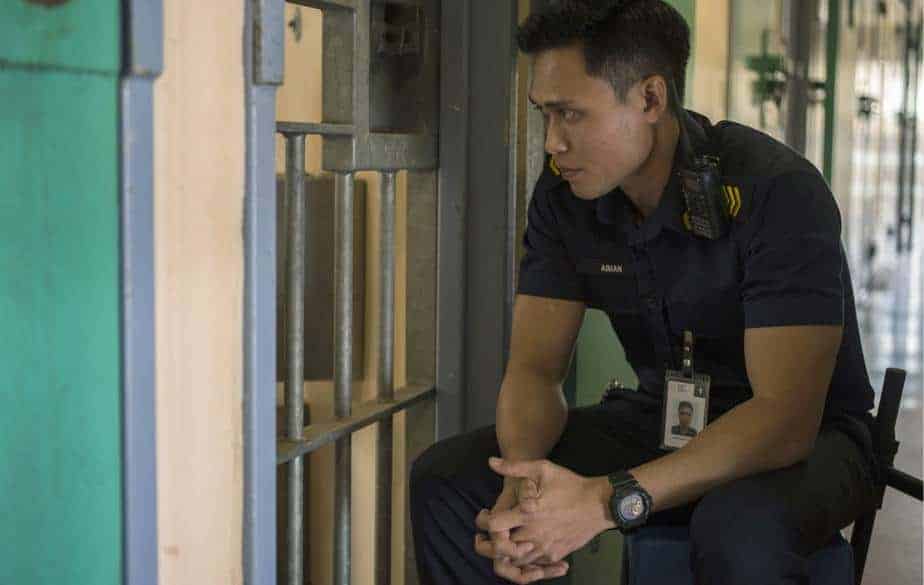
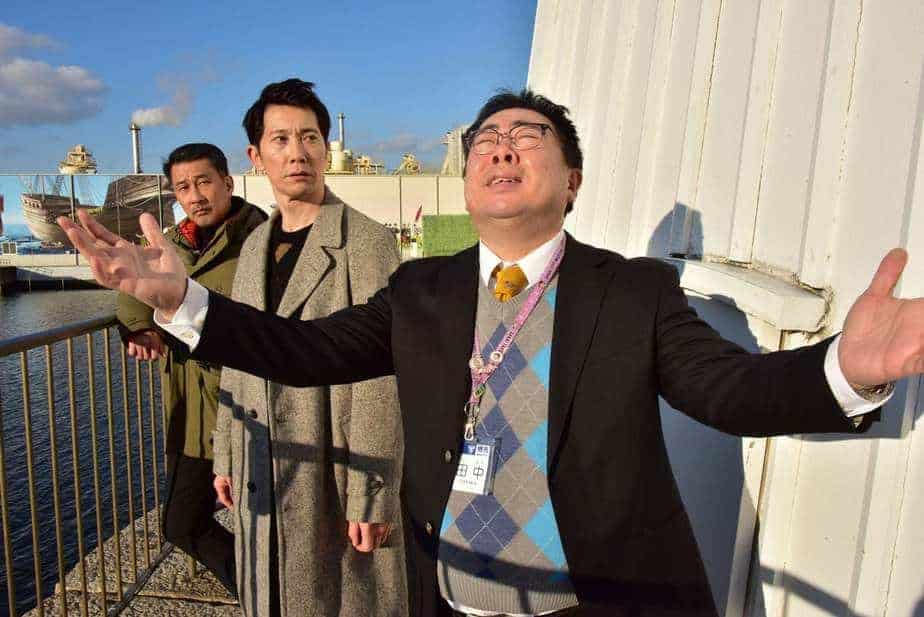
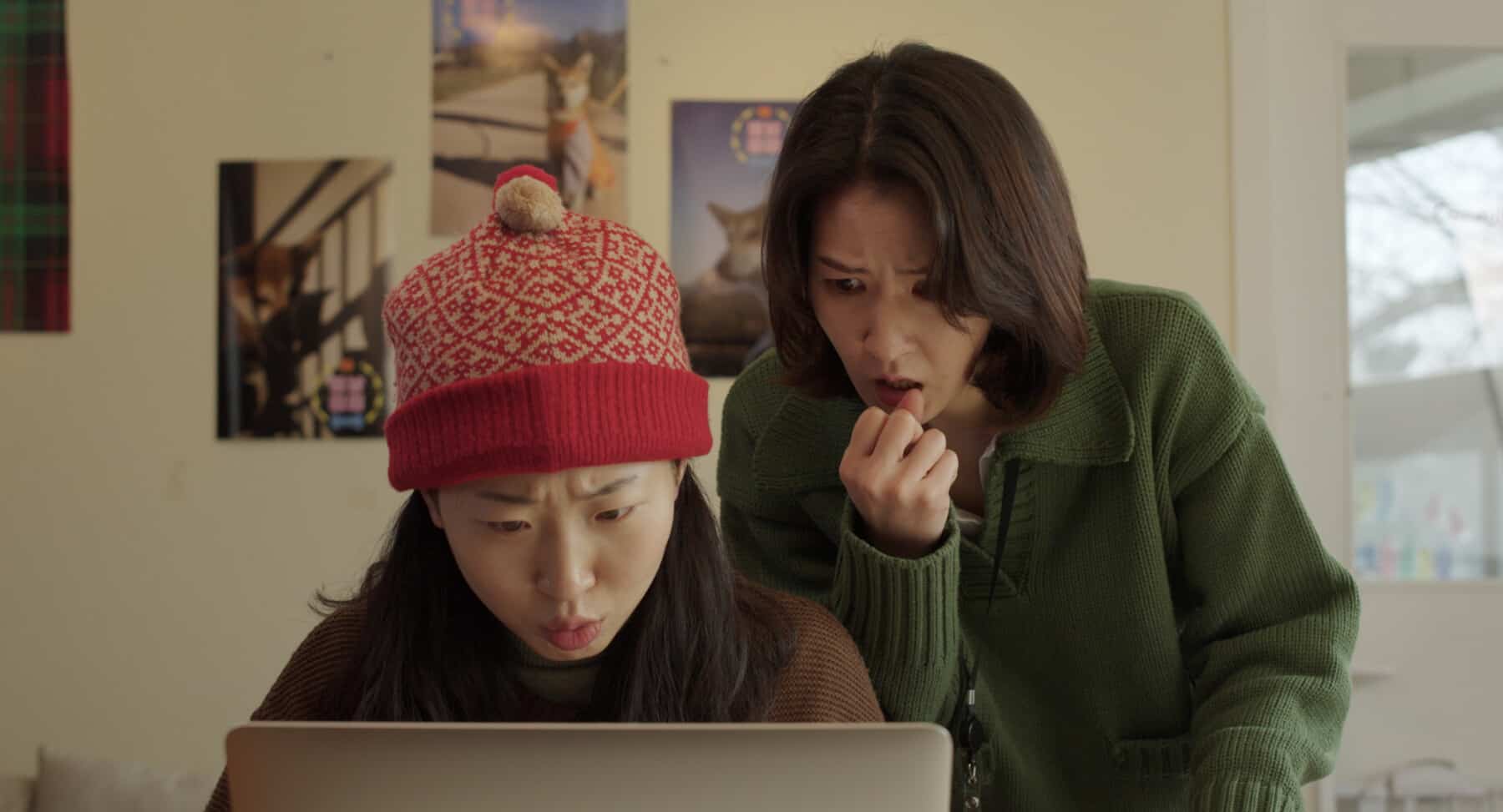
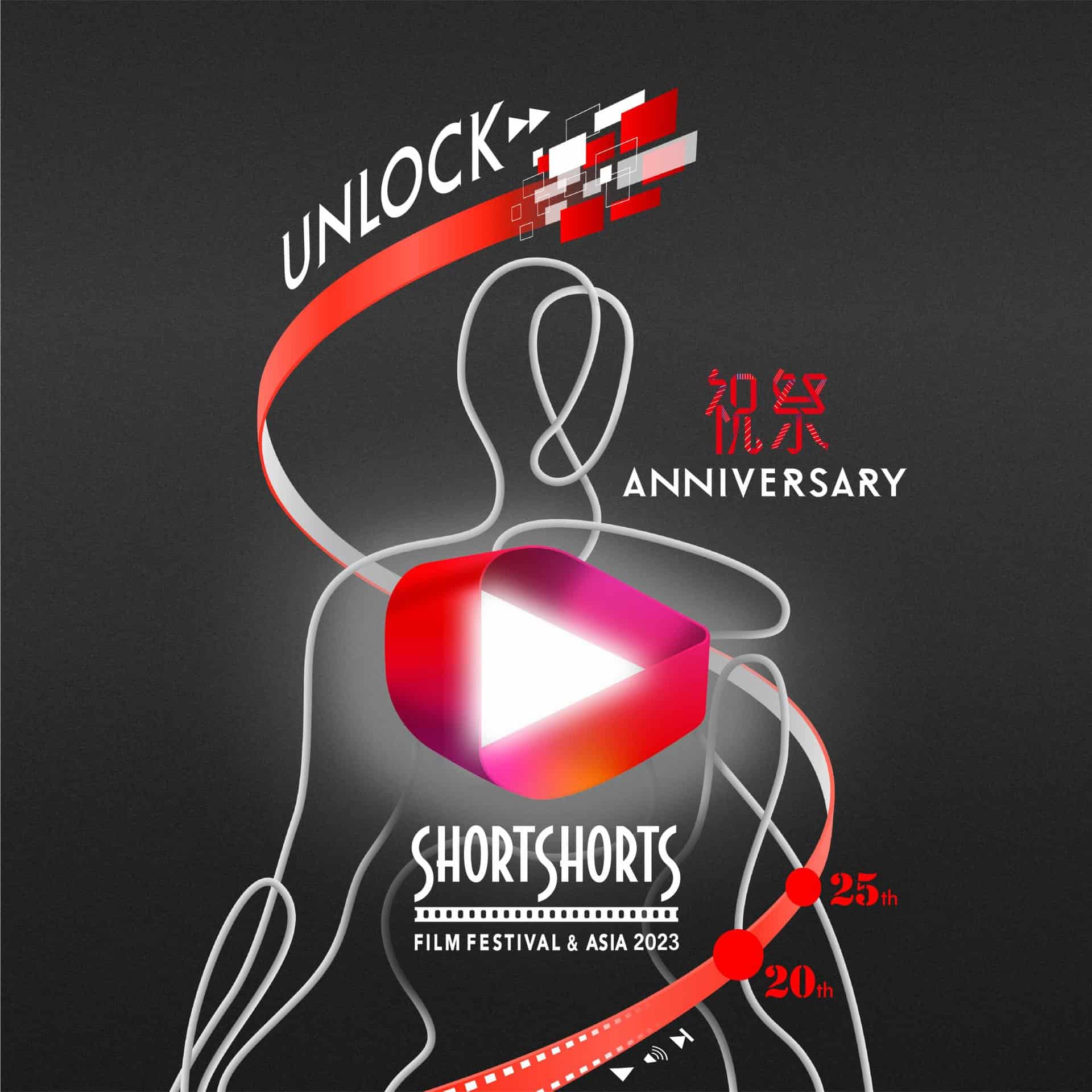
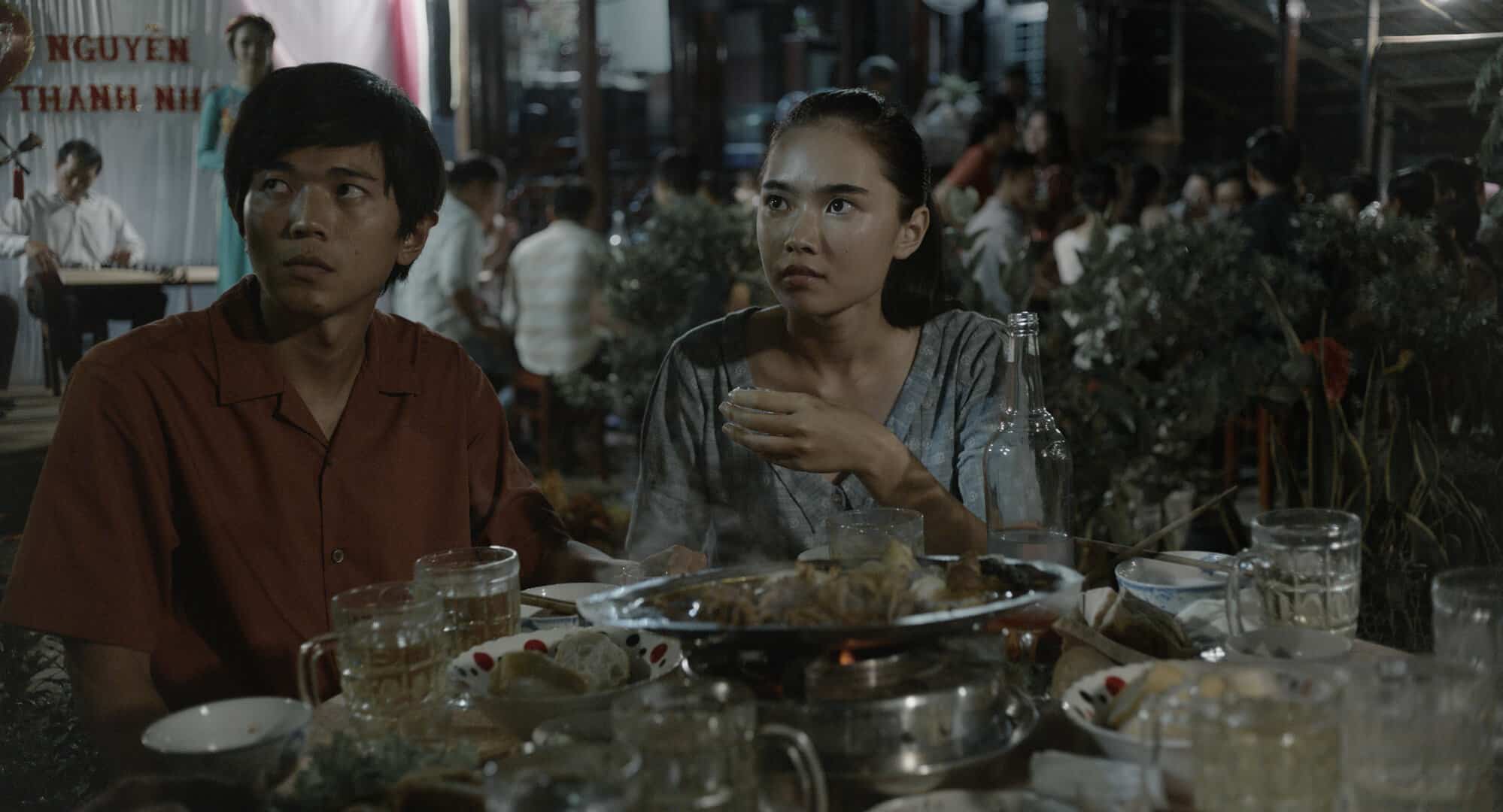
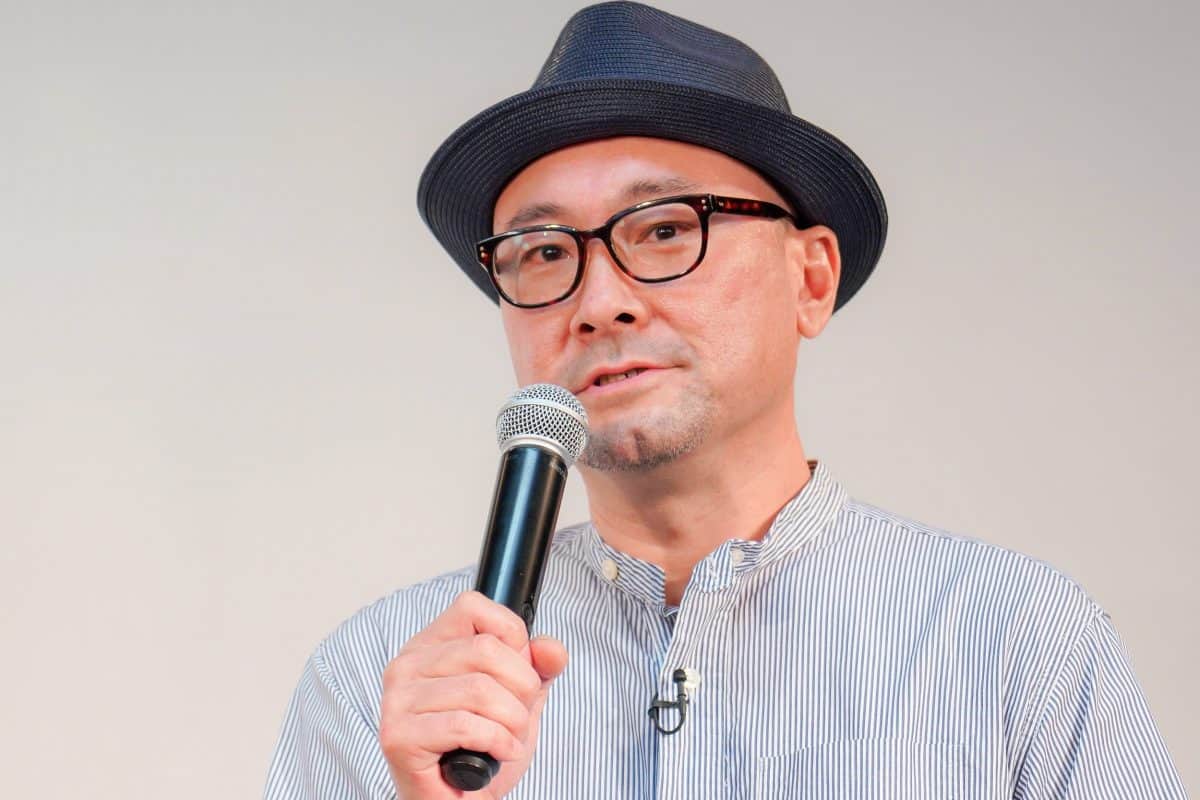







Interesting blog, keep it up!
Thank you, will do